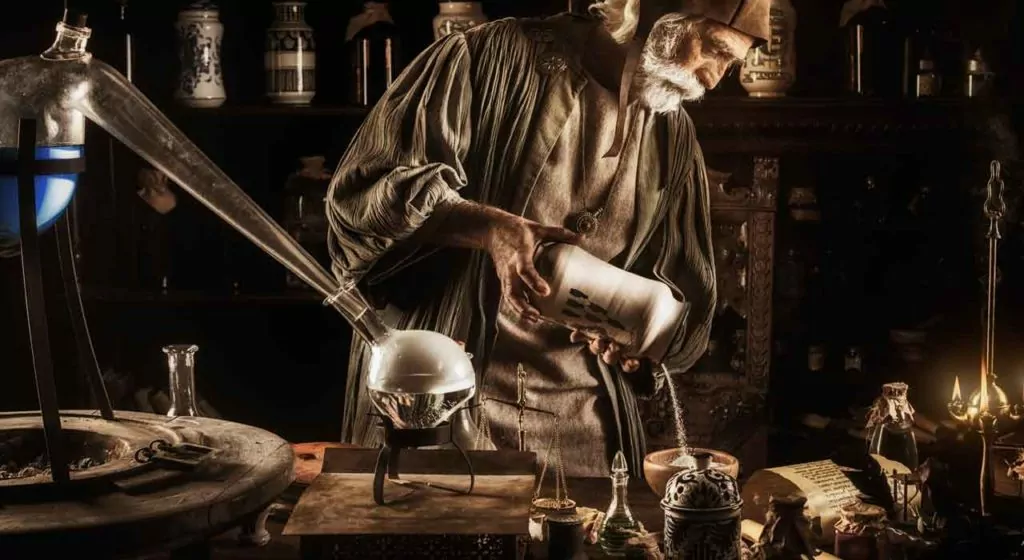Some years back we rented a little island cottage north of Kingston, Ontario, sight unseen, for the first week of July. The fact that in a world filled with animosity and chaos – spiritually as well as financially – we could freely do such a thing as rent a cottage was truly amazing. We read of beheadings, homicides, protests, countless refugee camps; of the persecuted, impoverished and dying; of massive and mind-boggling national debts; and we were free and able to go to a cottage. It is something to digest – something over which to chew.
It was a Friday afternoon when we traveled along the 401 towards our destination. We stopped at a small motel across from the Brighton Christian Reformed Church where, forty-two years ago, our second daughter had been baptized by my oldest brother. My brother is now with the Lord; the church, however, and its denomination, have deteriorated incredibly. We walked around the church building with a pang and thought, “How the mighty have fallen,” but Paul’s voice reproved us as we drove away across the black parking lot, “… let anyone who thinks that he stands take heed lest he fall.”
Four score and some years…
Saturday morning we drove on towards Elgin, bought some fruit and then, became a trifle lost. We asked directions from a man who was an apparent four score and some years – a man who was motoring along on the edge of his driveway in a wheelchair. He was a friendly sort, all gummy smiles and anxious to help. After he had pointed us in the right direction, he began to back up his wheelchair… towards the nearby ditch.
My husband, Anco, spoke loudly through the open window, “Stop! Stop, sir! There’s a ditch behind you!”
His voice grew louder as the thin, old figure smilingly continued to move backwards.
“Stop! Stop!”
It was too late. The wheelchair and its occupant slid down a small embankment. The octogenarian fell backwards off his seat and tumbled onto the grass. We were both out of the car in an instant, as was another motorist passing by. Thin glasses had been knocked off. We reached him as he, on all fours, was reaching for them. A little dazed, the man still smiled as we carefully helped him up.
“You really have to watch those culverts,” he said and grinned, while blood dribbled down his nose from small cut next to his left eye.
“Are you all right?” I held onto his arm, and he nodded brightly.
“I’m fine, really I am.”
My husband and the other motorist retrieved the mechanized wheelchair, rolling it back onto the driveway. I held a kleenex on his cut and like a child that has fallen off his bicycle for the first time, he climbed back on the wheelchair full of courage.
“I hit the reverse instead of the forward,” he said, “I should have known better.”
Anco checked the cut, but it was small and he seemed fine. So we drove off as he waved to us.
Good news and bad
We launched our boat at the appointed dock at Sand Lake. The owner, who was to meet us and guide us to the cottage, was late.
She arrived in a small aluminum boat, exclaiming as she jumped out, “You must be Anco and Christine. Sorry about the wait.”
We nodded and she went on. “There’s good news and bad news. I’ll give you the bad news first.”
We nodded again.
“There was a fire in your cottage last night and the fire department had to come. The good news is that the cottage did not burn down and my daughter and myself have been cleaning all day.”
We sympathized greatly, raised our eyebrows at one another when she wasn’t looking, and followed her, boat-wise, out to the cottage. A little three-room construction on a beautiful hilly, three-acre island met our eyes. Fir trees, mossy rocks, a female loon nesting on a little outcropping by the dock, all met our expectations of a northern getaway. Disembarking and loading ourselves down with food and luggage, we climbed up a small path towards the front door. As we entered the smell of smoke pricked our nostrils. The upstairs bedroom ceiling was somewhat blackened but, on the whole, with the windows flung wide open, things seemed to be under control.
“The last people,” Joan, our landlady, volunteered, “foolishly lit a candle before drifting off to sleep and the lampshade under which the candle was standing caught fire. The wife burned one of her hands trying to put the fire out. She had to go to emergency. They left a day early.”
We nodded once more and felt compelled to say that, generally speaking, we were not in the habit of burning candles. Joan next related that a John 3:16 framed Bible text had been standing on the night table but, amazingly enough, it had not caught fire. This was something which had confounded the pyromaniac couple causing them to exclaim, “Your God did not burn!” Joan, who was a Christian, smiled as she told us this, commenting that perhaps this would give them something to think about.
Wonders to behold
We spent the week fishing, playing Boggle, reading Spurgeon sermons and marveling at God’s creation. There was a scarlet tanager moment in which we noted a small splotch of red in a rock pool – a crimson fifth-day creature stretching its wings as it bathed. God must have smiled when he pronounced this bird good.
We often heard the raucous cry of the great blue heron as he skimmed by and saw, nearby, the dark belly and the white tail of the bald eagle majestically soar overhead. Again and again, the muskrat, apparently undaunted by our presence, swam up to and past our boat towards rock crevices on the shore. Daily the female loon, whom we dubbed Constance for her faithfulness in brooding her eggs, eyed us as we paddled by on our way out. A cerulean warbler sang a duet with a pine warbler. Water lilies lined inlets and little bays. During the day, the high heavens above declared how great God’s love was towards us; and as we contentedly fished in the evening, the red-balled setting sun in the west sang of the immeasurable distance God had removed our sins from us. The osprey as well as the kingfisher dove, the big and small mouthed bass bit, and we tanned under God’s goodness.
Something better coming
Yet we were unable to forget that we are pilgrims and continue to be pilgrims en route to a much, much better place than Sand Lake or any other northern getaway. For even as we enjoyed and glorified God’s goodness, Genesis 3 lurked in the background. We noted that creation has many thorns and thistles. There was poison ivy to avoid. Fly-catchers hunted dragonflies and other insects. Bald eagles and osprey ate fish. Owls hunted mice… and so the list went on. And in the background, the newspaper headlines we had left behind, whispered of terrorist organizations, human turkey vultures, seemingly devouring God’s people as if eating bread. Neither could we hide from the rampant materialism, egoism and self-centeredness breeding around and in ourselves. It skulked in our hearts and minds; it hid in the weeds as we trolled the shores of earthly life for a piece of the action.
On our way home, we stopped to say hello to the man who had fallen off his wheelchair. Full of good cheer, he was glad to see us. He told us that when he had fallen off his wheelchair, one of the things that had initially concerned him the most was that he might have lost his eye. It seemed that his left eye was made of glass. He was greatly relieved that it had remained in place in spite of the fall. We told him that we had prayed for his well-being and he smiled broadly.
We drove off thinking about the man’s eye, and about eyes in general.
After the fall, the continued though spoiled beauty in nature is God’s gift; and the promise of a totally renewed nature – both for the earth and for ourselves – through our Lord Jesus Christ, is grace. And Paul’s words of hope followed us as we drove home on the highway, “For, as it is written, no eye has seen, no ear has heard, no mind has conceived what God has prepared for those who love Him” (I Cor. 2:9).
This first appeared in the November 2015 issue. Christine Farenhorst is the author of many books, including “Hidden: Stories of War and Peace,” “Katharina, Katharina: the story of Katharina Schutz Zell,” and “The Sweet Taste of Providence.”












